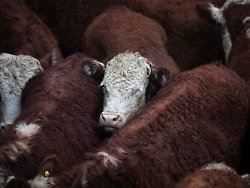Wednesday June 23, 2021
After a month’s break
Argentina is again exporting beef
The government believes that beef should remain affordable for the people of Argentina, and without further ado imposed an export ban. In protest, however, the farmers no longer sell any goods domestically. Now the ban falls.
After a month-long export ban, the Argentine cattle breeders are allowed to sell meat abroad again. However, the permitted export volume remains limited to 50 percent of the average export last year, said the Minister for Productive Development, Matías Kulfas. In addition, the export of some meat cuts that are particularly popular in Argentina will continue to be prohibited.
In the medium term, beef production is to be increased from the current 3.2 million tons to five million tons per year. In mid-May, the government of President Alberto Fernández banned the export of beef for a month. This should increase the domestic supply and decrease the price of meat. The agricultural associations then went on strike and no longer sold any meat at home.
Beef is very important in Argentina. “The absolute priority is that there is no shortage of meat on the Argentine tables,” said Minister Kulfas. Most recently, the price of meat had risen above general inflation. The per capita consumption of beef has been falling in Argentina for years. With around 50 kilos per person per year, the Argentines are still some of the biggest beef eaters in the world. For comparison: In Germany, the per capita consumption was last at just under ten kilos.
Beef makes up about five percent of Argentina’s total exports. In March, Argentine farmers sold around $ 225 million worth of beef abroad. The main customers are China, Israel, Chile and Germany.
.
